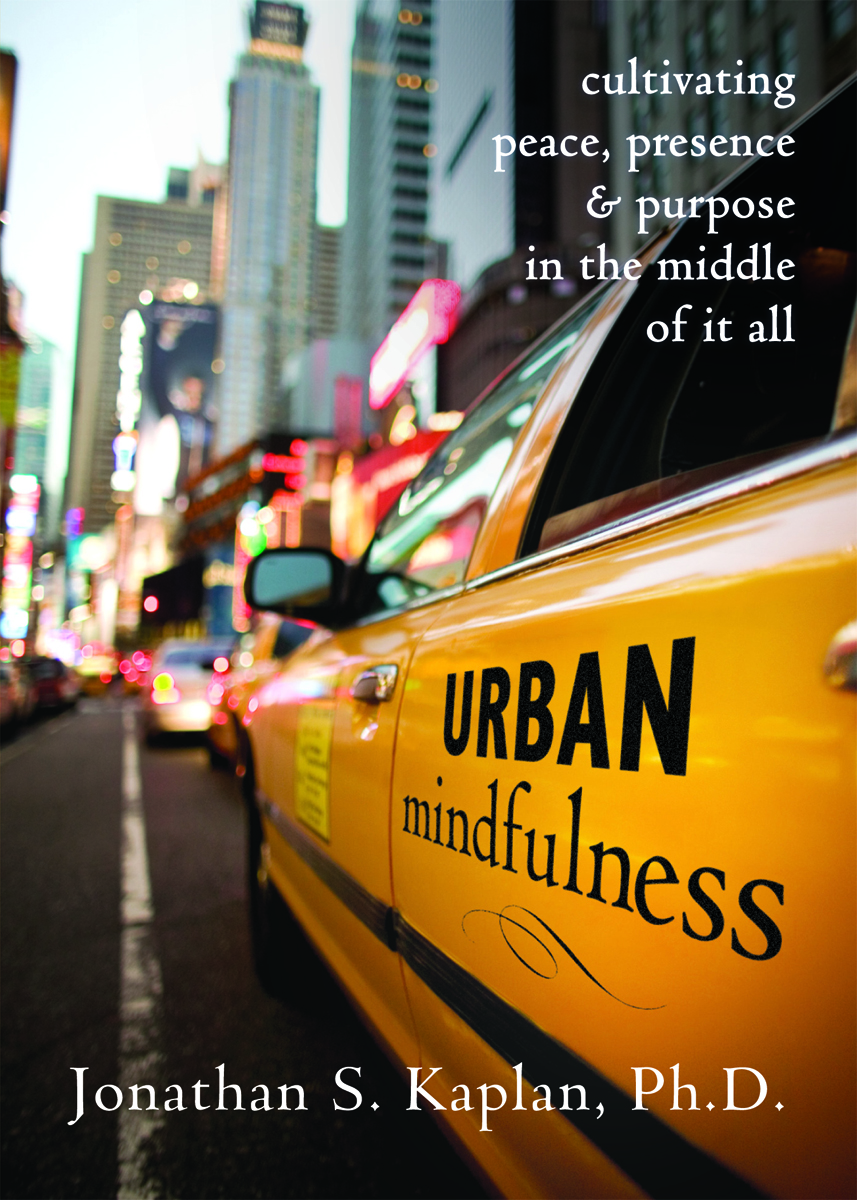Monday
Oct252010
Buddhism & Psychotherapy: An Interview with Dr. Mark Epstein
 Monday, October 25, 2010 at 03:38PM
Monday, October 25, 2010 at 03:38PM  By Jonathan Kaplan, Ph.D.
By Jonathan Kaplan, Ph.D.Recently, I had the privilege of corresponding with Dr. Mark Epstein, a distinguished psychiatrist and author. When I read his first book, Thoughts without a Thinker: Psychotherapy from a Buddhist Perspective, it blew me away! His book was my first exposure to the integration of Buddhism with psychotherapy, and I was amazed by the parallels that he elucidated. As someone who was new to Buddhism and psychoanalysis, I found his writing to be very accessible without any sacrifice in sophistication or eloquence. I especially appreciated the fact that he "went to the source" in his writing. That is, he referenced the works of Freud, Winnicott, and other psychoanalysts as well as the original Buddhist teachings. Since that time over a decade ago, I've been a big fan of his writing, and I recommend his books wholeheartedly (available here at Amazon).
Early next month, Dr. Epstein will be giving two presentations with Sharon Salzberg and Robert Thurman at the Tibet House in NYC. Entitled "The Healing Power of Awareness," the first talk will discuss mindfulness and meditation; it is scheduled for Friday, November 5, at 7 pm. On the following day, an all-day workshop will review the basic teachings of Buddhism and likely incorporate meditation, too; it's entitled "The Inner Revolution." These presentations promise to be an interesting, helpful exploration of mindfulness from a Buddhist perspective. The crew from Urban Mindfulness will be there in force--at least three of us, and maybe more. So, please enjoy reading the interview below (his responses are in italics), and we hope to see you at the Tibet House on November 5th and 6th.
Interview Questions
In what ways, do living and working in the city facilitate or hinder the cultivation of mindfulness or contemplative practice?
City or country, it's the same challange. There's never enough time for contemplative practice, there's always more pressing things to attend to. The concerns of daily life are like the waves in the ocean; there are an infinite number of them, wherever you are.
What suggestions do you have for people to practice mindfulness in the city?
Practice.
How has your experience of the city changed as a result of your meditation practice?
I love the city. I moved here after I was already practicing and loved it right away. I still do.
What is the most significant way in which your practice of Buddhism has influenced your practice as a psychiatrist who does psychotherapy?
It taught me to see my patients as already free.
Based on your work with patients, what is the most common obstacle to the development of a meditation practice?
Procrastination.
What advice do you have for patients (and others out there) who say that they can’t meditate?
That's no excuse.
Meditation and psychotherapy are sometimes accused of being very self-centered pursuits. By engaging in these activities, how can we improve our world or address some of its injustices (e.g., racism, hate crimes, etc.)?
It's not clear that it makes much of a difference but sometimes they help individuals to feel more empowered.
In your experience, which Buddhist principle is the most difficult for Westerners to understand?
The easy answer is shunyata or emptiness which nobody understands. But Westerners might have a particularly difficult time understanding love.
How do you explain the growing convergence of Buddhism and Western psychology?
Both traditions make the self the focus and the more you focus on the self the more it recedes, the more difficult it is to understand. This is interesting and keeps people open and looking for answers. So there is a natural conversation to be had between the two worlds.
Can you tell us a little bit about what you plan to discuss at your upcoming talk at the Tibet House?
We want to create a little room for people to work with their own minds. That's what we will be talking about and that's what we'll be hoping to encourage. The point of the weekend, though, is to have fun and to see that working in this way is joyful, even if it sometimes feels arduous. Bob and Sharon and I always have fun together---we want that to be infectious.
Mark Epstein, M.D. is a psychiatrist in private practice in New York City and the author of a number of books about the interface of Buddhism and psychotherapy, including Thoughts without a Thinker, Going to Pieces without Falling Apart, Going on Being and Open to Desire. His newest work, Psychotherapy without the Self, is published by Yale University Press. He received his undergraduate and medical degrees from Harvard University and is currently Clinical Assistant Professor in the Postdoctoral Program in Psychotherapy and Psychoanalysis at New York University.
Photo Credit: Larry Bercow
tagged  Tibet House in
Tibet House in  Awesome News!,
Awesome News!,  Meditation,
Meditation,  Psychotherapy
Psychotherapy
 Tibet House in
Tibet House in  Awesome News!,
Awesome News!,  Meditation,
Meditation,  Psychotherapy
Psychotherapy 

